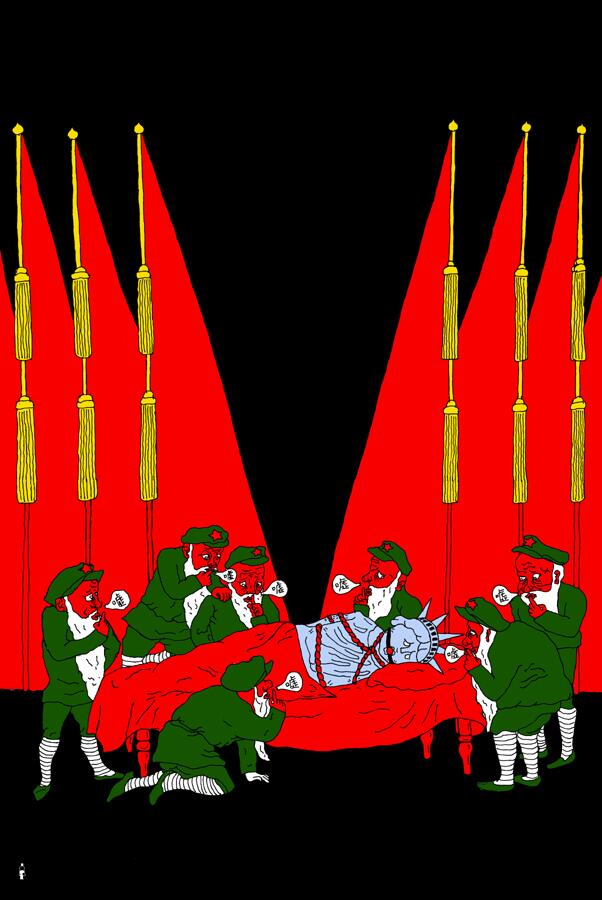The Word of the Week comes from the Grass-Mud Horse Lexicon, a glossary of terms created by Chinese netizens and encountered in online political discussions. These are the words of China’s online “resistance discourse,” used to mock and subvert the official language around censorship and political correctness.
七不讲 (qī bù jiǎng): seven don’t mentions
Seven politically sensitive topics that the government has prohibited university professors and lecturers from discussing with students, ennumerated in a directive allegedly issued by the General Office of the Party Central Committee to institutes of higher education in May 2013. The directive, which was leaked on Weibo and subsequently censored, outlined seven topics that were forbidden to be raised with students: universal values, press freedom, civil society, civic rights, historical mistakes by the Communist Party, elite cronyism, and an independent judiciary.
The “seven don’t mentions” appear to have been distilled from the “Communiqué on the Current State of the Ideological Sphere,” also known as Document Number 9, which lists seven threats to the legitimacy of the Chinese Communist Party. In April 2015 investigative journalist Gao Yu was convicted of “leaking state secrets” for allegedly sending Document No. 9 to Mingjing News (Mirror Media Group). Gao maintains her innocence, claiming that her earlier televised confession was coerced, and has appealed the conviction.
The CCP has sought to contain dissent in institutes of higher education. Student movements, such as the 1989 protests, have historically been major sources of unrest. A campaign against “Western values” in higher education began in January 2015.
“Seven don’t mentions” was blocked from Weibo search results as early as May 10, 2013, and remains blocked as of April 23, 2015.










